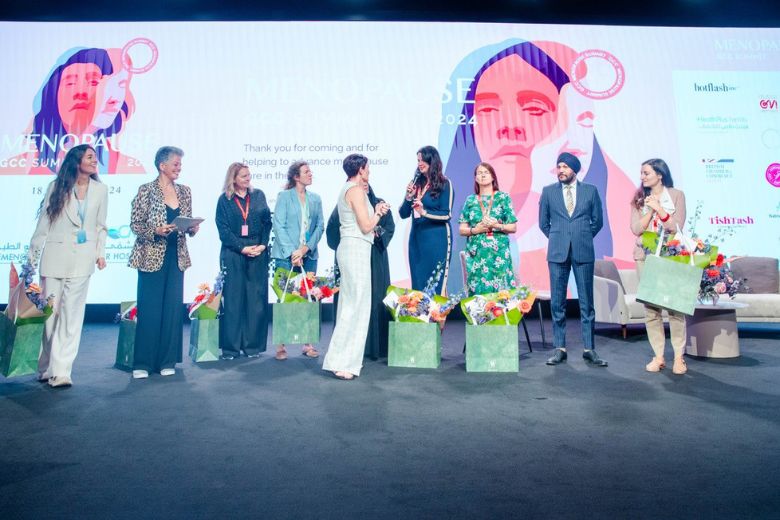The inaugural event explores why women leave the workforce and how AI can transform care
Convened to mark World Menopause Day, the inaugural edition of the GCC Menopause Summit gathered specialist healthcare professionals and prominent regional industry experts to share their insights with an audience of over 350 delegates at the iconic Museum of the Future.
The panel speakers discussed the mental, physical and emotional impacts of menopause
Setting the scene, the opening panel discussion highlighted the progress of discourse around a topic that had been stigmatised for generations. Going on to explore the 37 symptoms and seven fields of transformation women might experience, the panel speakers discussed the mental, physical and emotional impacts of menopause and shared personal stories about entering the phase prematurely.

The Summit featured keynotes from several healthcare professionals, discussing the treatments and therapies that can be used to manage symptoms. Nurbanu Mergaliyeva of Nabta Health spoke about working with a psychologist to overcome menopausal challenges, while Dr Marlain Mubarak of King’s College Hospital London discussed different hormone replacement therapies. Dispelling the myths around bioidentical hormone therapy, Dr Rupinder Ruprai of HealthBay Clinics revealed how it could provide a safe, regulated and more personalised approach to managing symptoms.
The impacts of diet, nutraceuticals, exercise and sleep were all discussed
The impacts of diet, nutraceuticals, exercise and sleep were all discussed, with panellists sharing personal experiences of different solutions, with a caution that there is no one-size-fits-all approach. A panel featuring Dr Khalid Shukri of the holistic wellness centre Wellth highlighted the power of peptides in managing symptoms.
One in ten have left a job due to symptoms, and during another titled ‘Hot Flashes, Cool Careers’
Turning to the discussion on workforce participation, Leah Cotterill of Cigna Healthcare MEA revealed survey data that shows eight in ten menopausal women feel they lack support in the workplace. One in ten have left a job due to symptoms, and during another titled ‘Hot Flashes, Cool Careers’, the panel moderated by Katy Holmes of the British Chamber of Commerce Dubai, Cheryl Thornton of the CIPD Middle East Advisory Board explained how simple adjustments to workplace policies and practices can make a significant difference, while Barry Harwood, of Harwood Partners, talked of the importance of visible male allies and preventing the brain drain that occurs when talented women leave the workplace.

Her Excellency Mubaraka Ibrahim, Chief AI Officer at Emirates Health Services UAE, delivered the final keynote address. HE Mubaraka spoke about the potential of artificial intelligence to transform care for menopausal women by improving symptom tracking, accelerating drug development, and addressing unique needs with personalised solutions. The event concluded with a panel on the battle of the pauses, which explored the differences and overlaps between andropause and menopause.
The summit’s founders included Sharon James, women’s wellness coach and menopause educator; Katy Holmes, CEO of British Chamber of Commerce Dubai; Sophie Smith, Founder/CEO of Nabta Health; and Dr Harmeek Singh, Founder of Plan and Chairman of Women’s Run.
Sharon James said, “We have been overwhelmed by the response to this first-of-its-kind event in the GCC. It has demonstrated that these open conversations are overdue, and there is a strong will to lead the change in this region to support personal well-being and business sustainability. We are grateful to all the panellists and speakers for their expert insights, and we look forward to building on these lessons with practical solutions so that every woman feels heard and seen.”
For more information,




